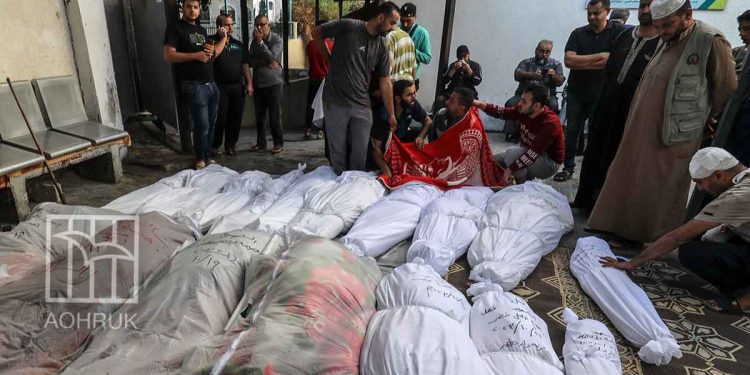Seventeen Palestinians were killed and others injured in a series of Israeli air strikes and artillery shelling that targeted various areas across the Gaza Strip in the early hours of Wednesday. The attacks are part of an ongoing campaign that has continued for over 18 months, resulting in mass civilian casualties.
According to medical sources and eyewitnesses, concentrated air raids struck residential homes in the Al-Shaaf, Al-Tuffah, Al-Zaytoun, and Al-Shuja’iya neighbourhoods of Gaza City, killing 13 people, including two children, and injuring dozens more. In northern Gaza, three Palestinians were killed when a house was bombed in Jabalia.
In the south of the Strip, a Palestinian man succumbed to injuries sustained in an earlier strike on the town of Khuza’a, east of Khan Younis. Two others were wounded when an Israeli warplane targeted a fishing vessel off the coast of Al-Mawasi. Several areas in Khan Younis and Rafah were subjected to intense bombardment, including air raids and the demolition of residential buildings, accompanied by gunfire from military helicopters.
Simultaneously, Israeli artillery targeted the outskirts of Al-Bureij refugee camp and the Al-Da’wa area north-east of Al-Nuseirat camp in central Gaza. The violence triggered new waves of displacement, with civilians fleeing eastern parts of Gaza City to escape the ongoing bombardment.
These attacks come amid continued disregard by Israeli forces for international humanitarian law, particularly the Geneva Conventions, which prohibit targeting civilians, residential areas, hospitals, and displaced persons’ shelters. Since 7 October 2023, over 51,000 people have been killed, including thousands of women and children, reflecting a pattern of violations that may amount to genocide, war crimes, and crimes against humanity.
Despite an outstanding arrest warrant issued by the International Criminal Court for Israeli Prime Minister Benjamin Netanyahu, the campaign of mass killings and deliberate destruction continues unabated. The lack of meaningful accountability and weak international deterrence measures appear to embolden continued violations on the ground.


























